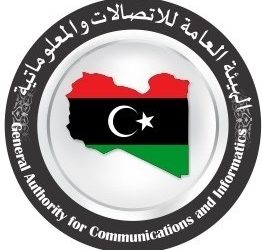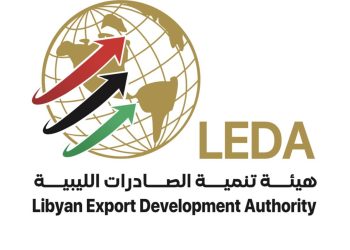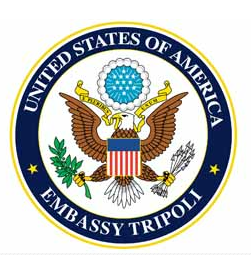A meeting was held yesterday, in the office of the Governor of the Central Bank of Libya (CBL), to follow up on government spending for the year 2024.
In the absence of Libyan political unity and with the continued split between the Tripoli based Libyan government and the Benghazi based Libyan parliament (the House of Representatives – HoR), this is as close as western Libya gets to an annual state budget for 2024.
The meeting included Tripoli based Libyan Prime Minister, Abd Alhamid Aldabaiba, Chairman of the Presidential Council, Mohamed Al-Menfi, Governor of the Central Bank, Al-Siddiq Al-Kabir, Minister of Transport, Mohamed Al-Shahubi, Minister of State for Cabinet Affairs, Adel Jumaa, and the Director of the Central Bank of Libya Supervision of Cash Department, Naji Issa.
LD 40 billion in fuel subsidies to GECOL
The meeting, the CBL reported, was devoted to discussing government spending controls for the year 2024, and special controls for the amounts allocated for fuel subsidies with all its derivatives for the benefit of the General Electricity Company of Libya (GECOL) or distribution companies. The CBL reported that this subsidy reached more than 40 billion dinars in 2023, which, it said ‘‘exhausted the general budget’’.
Spending controls necessary
The CBL reported that the attendees stressed the necessity of establishing the necessary controls that contribute to controlling public spending, working to improve citizens’ conditions in all aspects of living, providing appropriate conditions for them, and focusing on the development programme throughout Libya in all its aspects.
Need for fuel subsidies reform
The attendees, the CBL added, stressed the need to disclose all government expenditures in the budget sections, and to follow up on the work of the committee formed to provide alternatives to fuel subsidies and determine the actual needs for it, as it is the most important file.
Adequate LCs opened for Ramadan food supplies
The CBL reported that Governor El-Kaber explained that the balance of documentary credits through commercial banks open to supply food supplies amounts to 4 billion dinars, which in turn will contribute to the provision of basic goods during the holy month of Ramadan. He stressed the need for the Ministry of Economy and Trade and the Municipal Guard to carry out the tasks assigned to them (preventing merchants from hoarding scarce goods and overpricing during Ramadan), and to continue coordination with the Ministry of Economy in providing the necessary needs of citizens in accordance with the necessary controls.
Analysis and comment
In reality, this ‘‘spending high summit’’ is about who decides how much the Tripoli government spends. It is an ongoing tug-of-war between the Aldabaiba government and the CBL Governor. Tensions between Aldabaiba and El-Kaber have been high. El-Kaber is putting the brakes on Aldabaiba’s spending.
Menfi acting as peacemaker
Hence the presence in the meeting of Presidential Council head, Mohamed Al-Menfi. He is the peacemaker. He is attempting to find a compromise so that the vulnerable Tripoli political house of cards does not come crashing down.
CBL custodian of Libya’s money
Without a functioning Libyan parliament, El-Kaber sees himself as the custodian of the Libyan people’s money. He sees interim governments since 2011 as weak, inexperienced, and profligate – tending to populist spending to stay in power.
Aldabaiba likes spending
Aldabaiba likes to spend but has not come up with revenue generating projects. He likes construction projects and likes to give out handouts such as the youth and women and child allowances. He had intended to run in the last cancelled elections and his critics see his spending as part of an early election campaign.
Runaway subsidies
El-Kaber is particularly irked by the runaway subsidies and specifically the subsidies for electricity, which with constant electricity generation, have rocketed. The CBL Governor wants Aldabaiba to enforce subsidy reforms, increase oil production, increase other tax revenues, and rationalise spending.
Aldabaiba reluctant to implement unpopular policies
Aldabaiba is reluctant to take tough action. He is scared to rock the political boat. He fears popular demonstrations or any civil unrest which he feels would be exploited by his enemies to topple him.
NOC unable to increase oil production
It will be recalled that the National Oil Corporation had been given an extra special budget to increase oil production. It has failed to increase production beyond c. 1.2 million barrels per day.
Current spending unsustainable
The current spending on state-sector salaries and subsidies are unsustainable. This is especially the case if Aldabaiba wishes to continue spending on reforming other sectors such as roads, schools, the health sector, airports etc etc. Libya’s revenues are finite and El-Kaber does not want to increase the state deficit nor does want to dip into reserves. He wants to government to earn what it wants to spend.
Brinkmanship
It is a fine balancing act. El-Kaber, Aldabaiba and Menfi have it all to lose. They are part of the western Libya militia regime that props them up. They can play brinkmanship with one another only so far. If the western Libyan political system collapses, they would all lose and be out of power – and most probably out of Libya all together.










